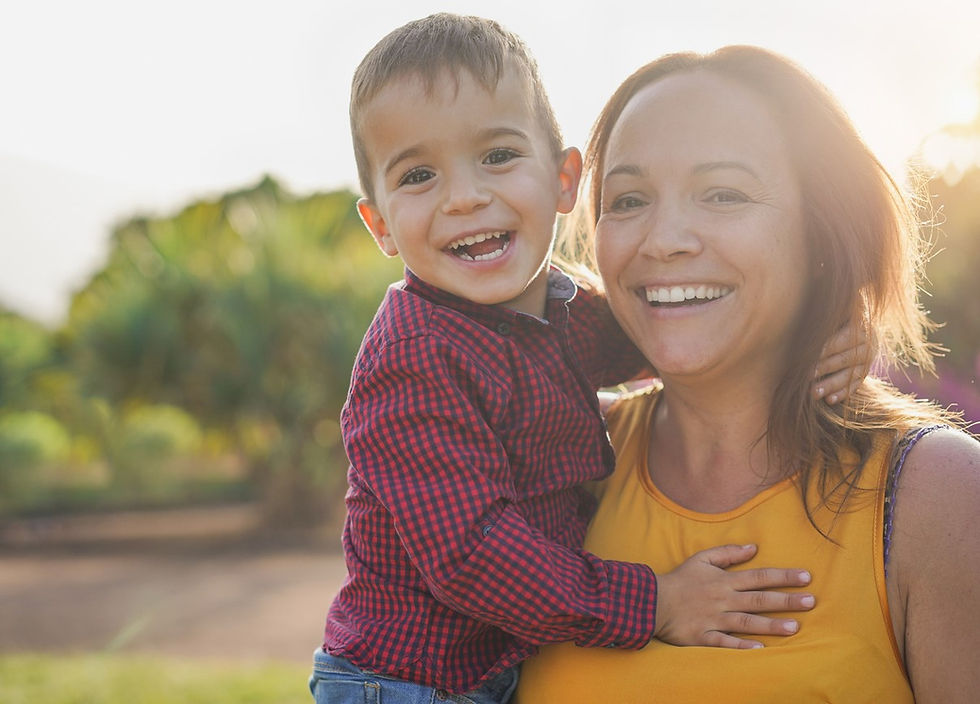Ask Yesenia: Parenting Through Back-to-School Emotions
- Yesenia Gomez-Carrillo
- Sep 11, 2025
- 3 min read
The new school year is here (already—how did that happen?). With it comes big transitions, complex emotions, and a lot of effort from all of us. As parents, it can feel overwhelming to navigate our children’s new milestones while also supporting them through the emotional waves that come with change.
My daughter recently started her second year of preschool, and let me tell you, the big feelings are very real. After a full day of constant stimulation, structure, and social interaction, it makes sense that she comes home needing to decompress. Home is where she can finally let her guard down and be her full, unfiltered self. And yes—cue the tantrums!
But even in the chaos, there’s something comforting about knowing she feels safe enough to release all those built-up emotions with us. I’m grateful to support her through this transition, no matter how loud or messy it gets. So, as we settle into the new school year, let’s remember to care for both the physical and emotional well-being of our children, ourselves, and school staff.
This monthly article provides tips for anyone raising children, based on the world-renowned Triple P – Positive Parenting Program, available to families in Santa Cruz County. If you have question or idea for a future column, please email me at triplep@first5scc.org.
Dear Yesenia,
School just started and it’s been rough for my kids in preschool, 3rd grade, and 6th grades. They’re excited to be with their friends, but it’s also been hard for them. We’ve had several big meltdowns already, and it’s like a domino effect. When one of the kids starts to fall apart, the other two start to whine, complain, or bicker. It’s non-stop. My partner and I are so exhausted it’s hard to be patient with them. Help!
- Jason
Dear Jason,
There are several positive parenting strategies that could be helpful in this situation. Here are a few tips to try:
Normalize the big emotions. Many kids experience a mix of emotions at the beginning of the school year – happy, excited, confident, worried, nervous, overwhelmed, and more. Kids are adjusting to new school routines and expectations, while also trying to navigate friendships and the “social rules” at school. This can be stressful and overwhelming for a variety of reasons.
Go back to the basics. Sometimes, kids just need time and space to feel their emotions and settle into their routines and relationships. Adults can help by going back to the basics of positive parenting: spend quality time together, talk with each other, and give affection and attention. Give each child your full, focused attention for brief but frequent amounts of quality time. Talk with them before and after school, during meals, and at bedtime. These could be casual conversations about things they’re interested in, check-ins about their feelings and experiences, or something in between. Listen to any concerns or feelings they share, and acknowledge what they’re experiencing —“That sounds really hard,” or, “It’s ok to feel that way.” Give affection and attention to reassure them you care for and support them. During calm moments, teach them techniques like deep breathing, yoga, or coping statements (affirmations) so they can use these tools whenever they feel strong emotions.
Help kids problem-solve. If your kids share a concern, resist the urge to solve it for them. Instead, ask what they think could help and if they have ideas about what to do. If they want your assistance, help them define “the problem” – e.g., they don’t understand what their teacher is covering, or they’re having difficulty making friends. Have them brainstorm several ideas of what they could do and help them think through the pros and cons of each option. Encourage them to pick one idea to try, then ask questions, like “What could you do first?”, “What would you say?”, or “When could you try that?” to help them develop a concrete plan. Have them try their plan, then check in periodically to see what worked well, what could have gone better, and if they want to try another idea. This process helps kids develop problem-solving skills they can use in any situation throughout life.
Final Thoughts: As you support your children’s emotional health, remember to take care of your own physical, mental, and emotional well-being. Do something that helps you rest, recharge, and be a calm, patient, and positive parent.
Yesenia Gomez-Carrillo is the mother of a 3-year-old daughter and the Triple P Program Manager for First 5 Santa Cruz County. Scientifically proven, Triple P is made available locally by First 5, the Santa Cruz County Health Services Agency, and the Santa Cruz County Human Services Department. To find a Triple P parenting class or practitioner, visit http://triplep.first5scc.org, http://www.facebook.com/triplepscc, or contact First 5 Santa Cruz County at 465-2217 or triplep@first5scc.org.




Comments